Larry Bell explores the ethereal nature of glass in Monaco
Larry Bell's retrospective at Hauser & Wirth, Monaco, unites old and new work
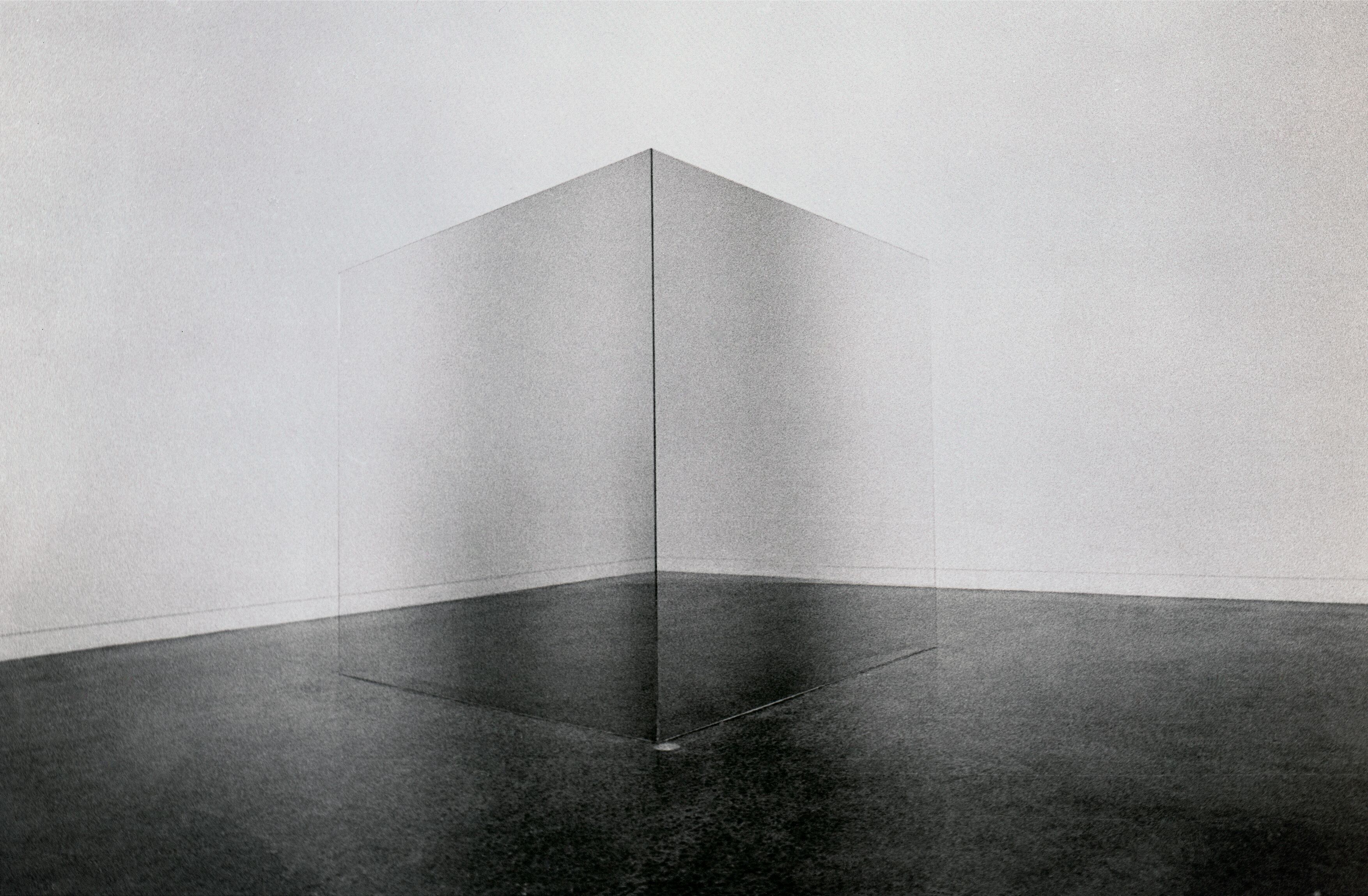
In the film that accompanies Larry Bell’s new exhibition at Hauser & Wirth Monaco, the 84-year-old artist is seen from behind, peering through a small aperture in the middle of an enormous, bank vault-style circular door. With his brimmed hat and braces, the artist could easily pass for Heisenberg or Oppenheimer observing some atomic experiment, and yet, given Bell’s highly scientific approach, the comparison goes beyond mere appearances.
The door belongs to Bell’s vacuum-coating machine (affectionately known to Bell as ‘The Tank’), a cylinder ten feet long and seven across, specially commissioned in 1969 to facilitate production of his early Standing Walls. These large-scale sheets of glass, seamlessly joined with silicone into corners, squares and zigzags, mark a departure from Bell’s comparably robust, metal-framed glass cubes produced in the 1960s, towards something purer, more ethereal and, in the artist’s words, more ‘improbable’.
‘Larry Bell: Works from the 1970s’ at Hauser & Wirth, Monaco
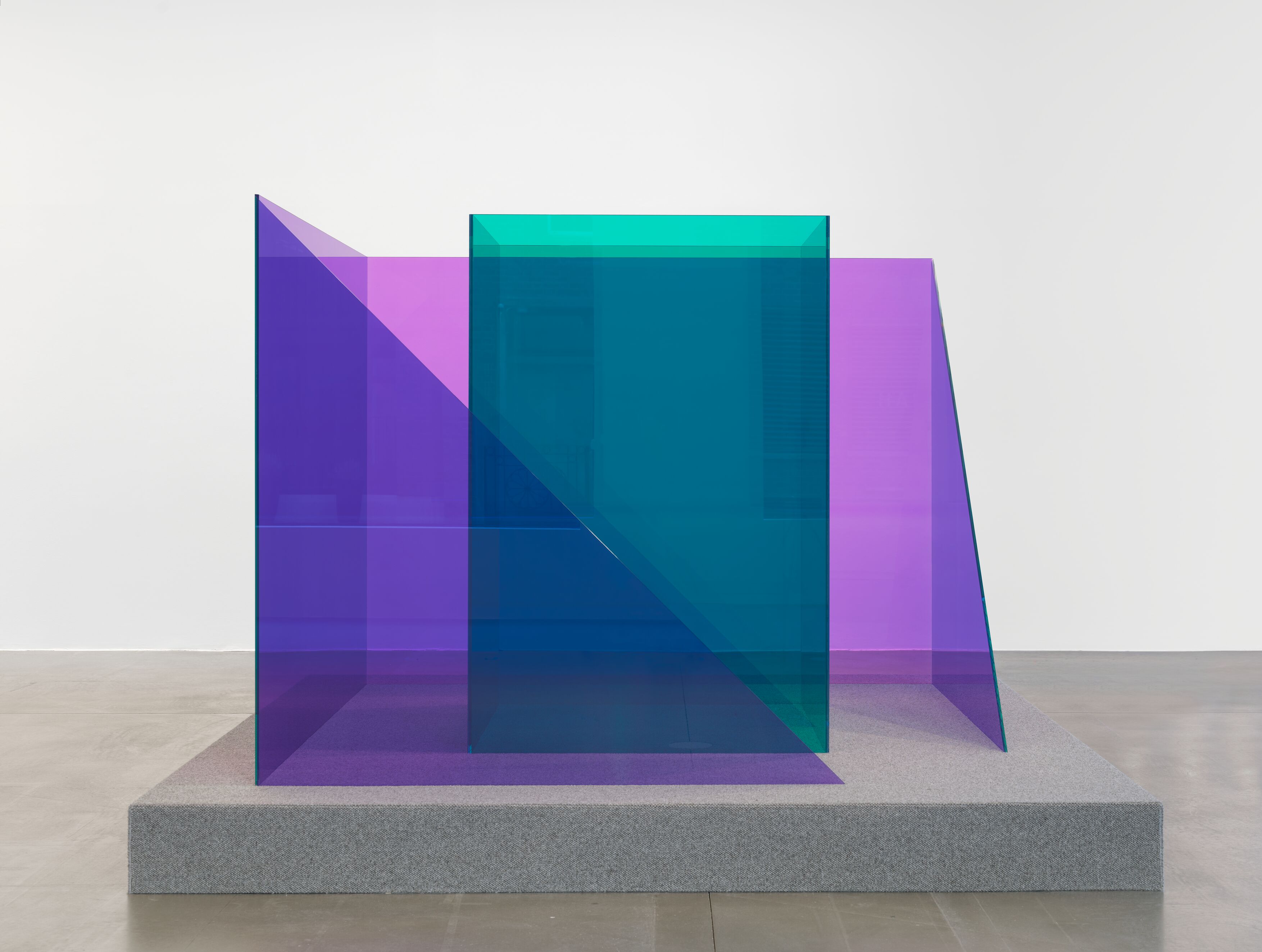
Larry Bell, The Blue Gate, 2021
Within the tank’s airless seal, Bell plays with the molecular structure of his sculpture's surfaces, evaporating metals at high temperatures to maintain their crystalline structure and coat the glass in gossamer films of aluminium or silicon oxide. As Bell simply puts it: ‘There are things that can be done with metals and surfaces inside an environment that contains no air that cannot be done in the presence of air.’ By layering these films and altering the opacity or reflectivity of the glass, Bell’s Standing Walls become places of performance and optical distortion, activated only by the presence of a viewer.
Four of Bell’s largest and most ambitious Standing Walls from the early 1970s are shown in Hauser & Wirth’s cavernous subterranean gallery. Lit by an oculus that floods the space with Riviera sunshine, each sculpture feels charged to its maximum illusory potential, fluidly disappearing and rematerialising, simultaneously an object and its surrounding environment. For all their technical precision, there is no shortage of subtlety or sensuousness. In a city where glass abounds in the austere forms of high-rise hotels and apartment blocks, these works remind us of the material’s ability to alter our sense of space and of ourselves.
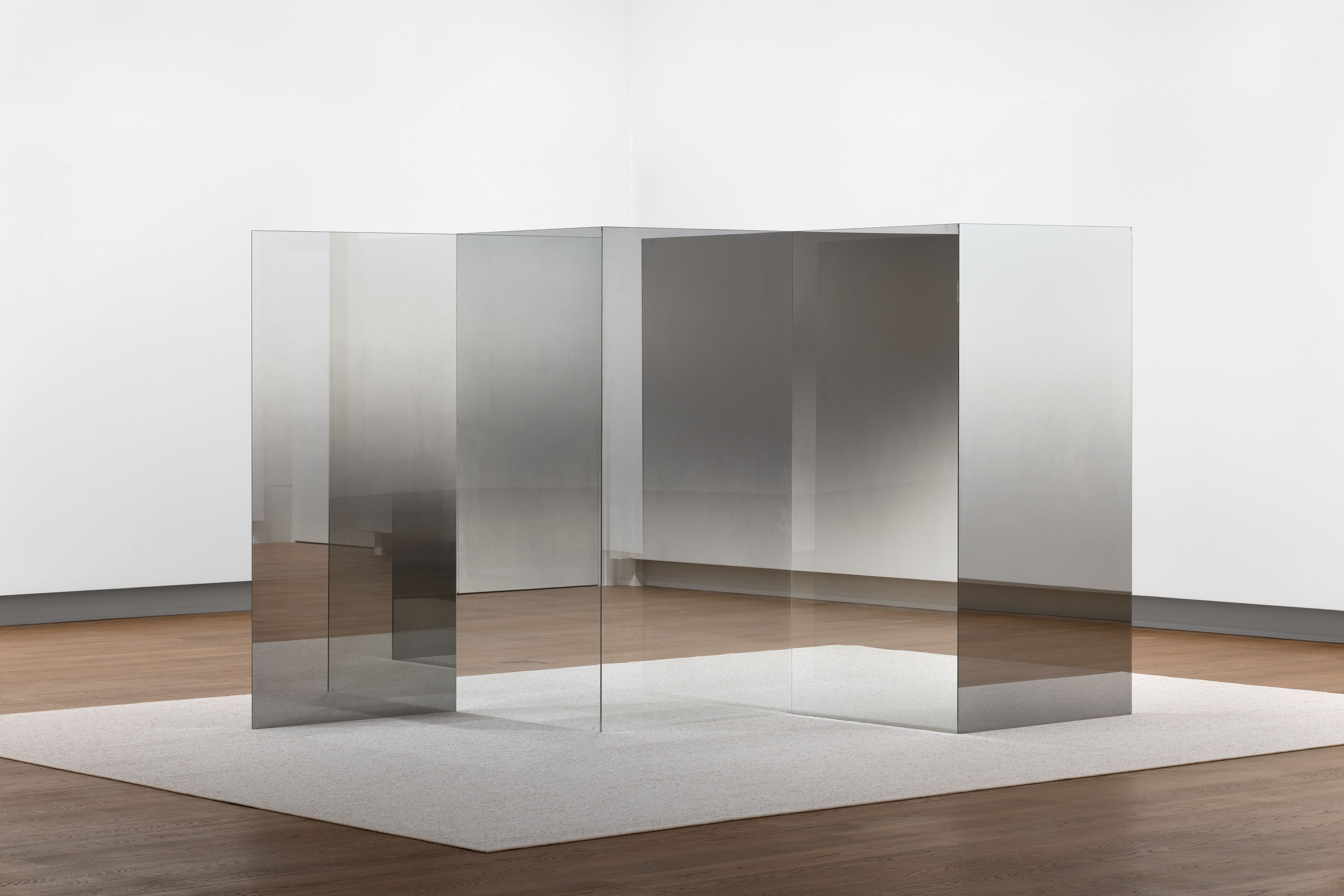
Larry Bell, Untitled, 1970
Adding to the room’s optical acrobatics is a large wall piece, Moving Ways (1978), one of Bell’s vapour works made using a modified version of the vacuum coating process to apply aluminium to black paper. Seen through, or reflected by, his sculptures, the works envelop one another, pooling their powers of illusion to create fleeting moments of perfect harmony.
Outside, in the Jardins des Boulingrins that lie adjacent to the gallery, a more recent and highly coloured glass work, The Blue Gate (2021), offers a more complex structural counterpoint to the Standing Walls. Installed on a lawn that forbids viewers to walk on it and approach the sculpture, its surfaces are robbed of their full visual potency and it feels oddly dormant. This work, together with the exhibition as a whole, reminds us that while these sculptures may have been created in a vacuum, they are only truly alive in close proximity to people.
‘Larry Bell: Works from the 1970s’ is at Hauser & Wirth, Monaco, until 31 August 2024
Wallpaper* Newsletter
Receive our daily digest of inspiration, escapism and design stories from around the world direct to your inbox.
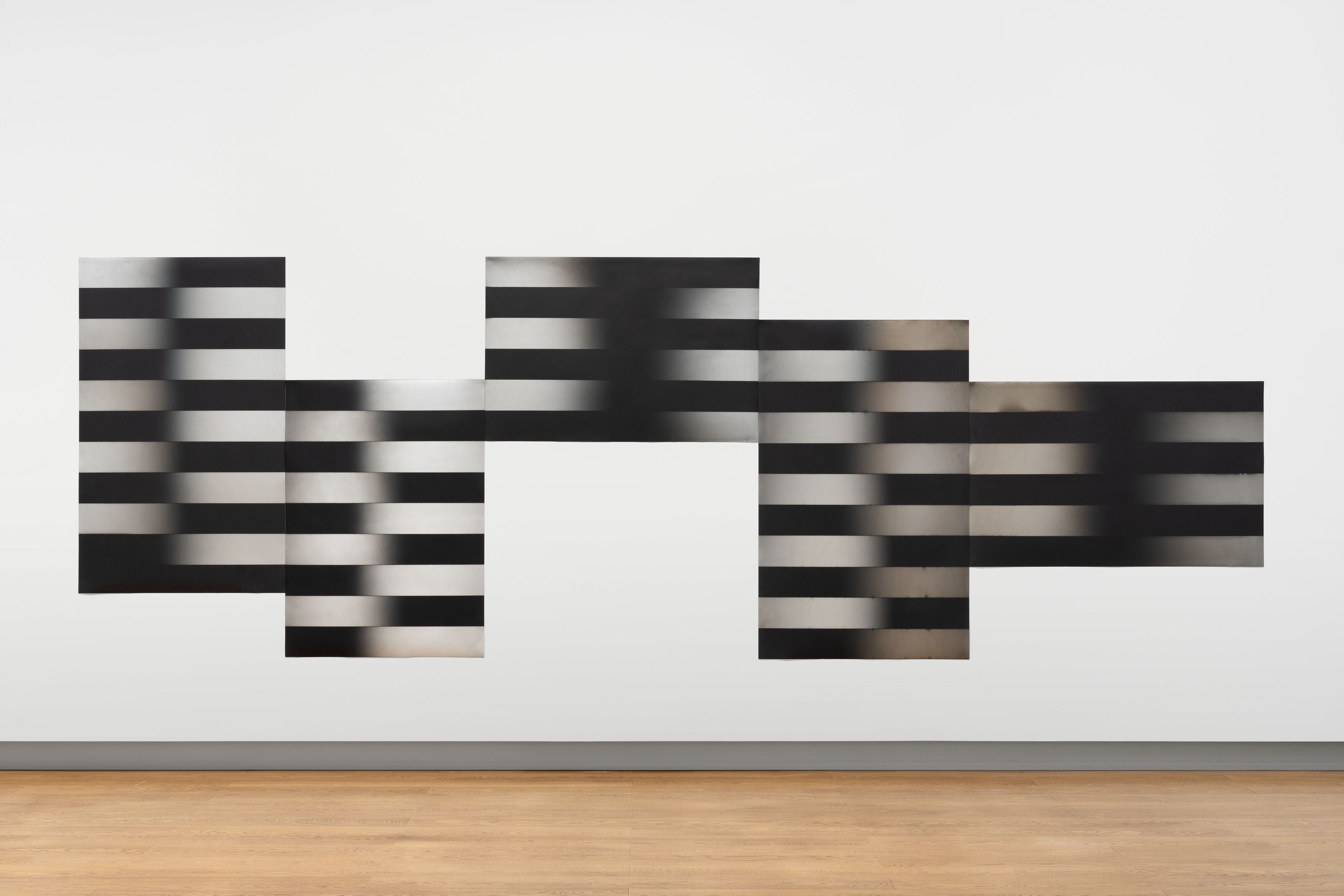
Larry Bell, Moving Ways, 1978
-
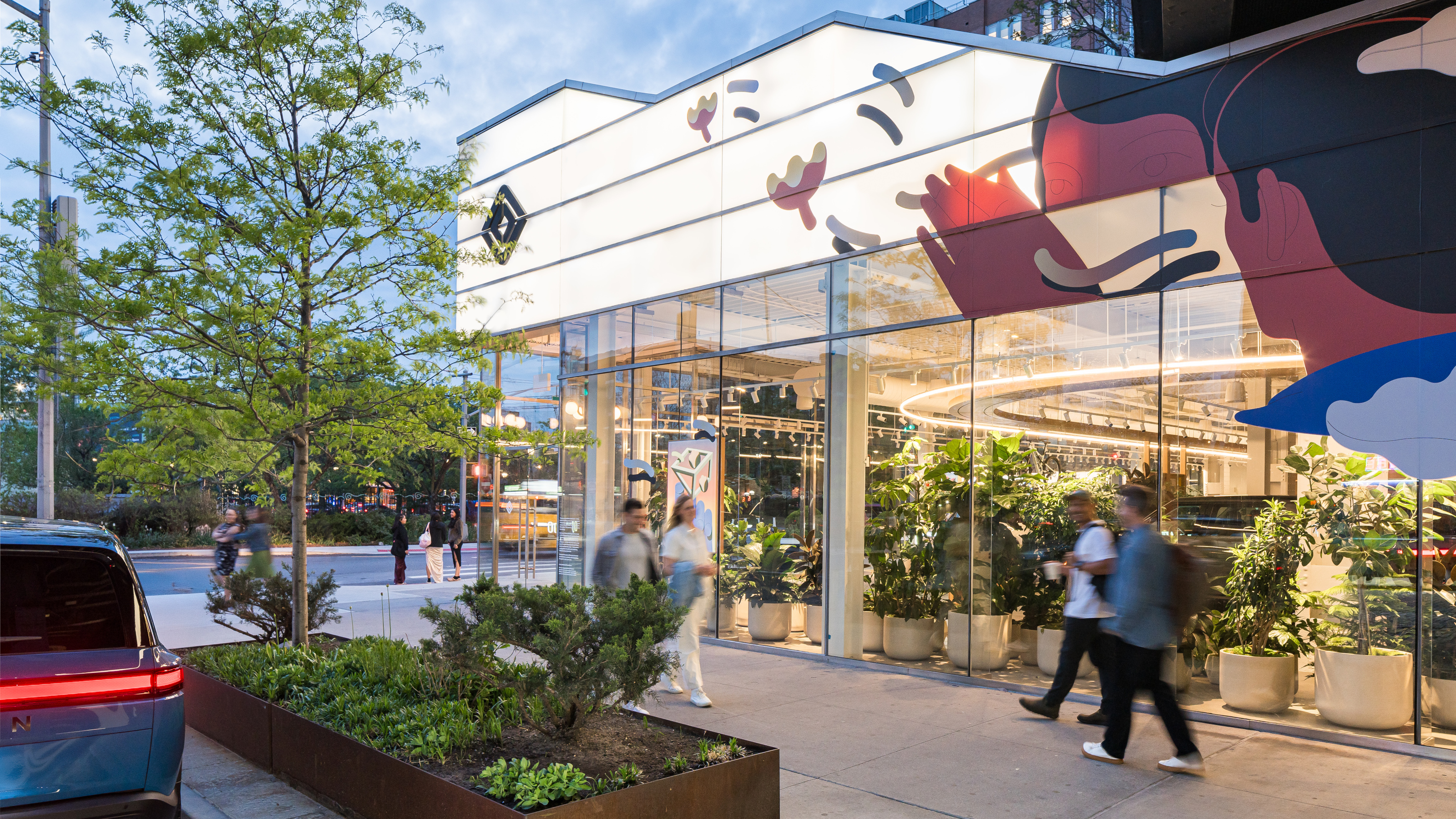 EV maker Rivian creates its first Concept Experience in New York’s Meatpacking District
EV maker Rivian creates its first Concept Experience in New York’s Meatpacking DistrictUnder the High Line, in the heart of one of New York’s most famous neighbourhoods is the Rivian Concept Experience, a showroom designed to surprise and delight both long-term aficionados and total newcomers to the brand
-
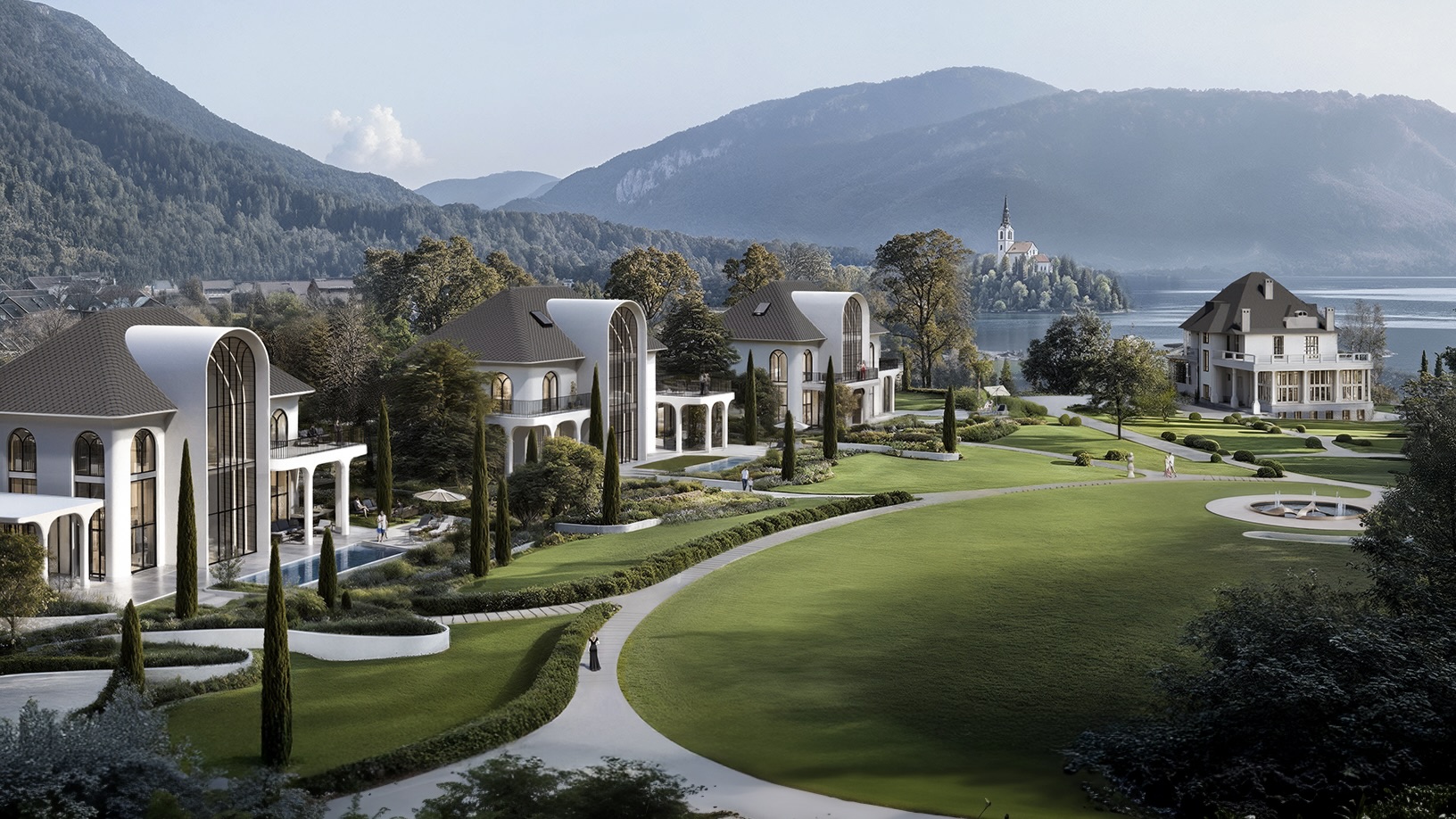 How to use AI in architecture? A practical guide with Tim Fu
How to use AI in architecture? A practical guide with Tim FuArchitect Tim Fu, an early AI adopter who regularly uses these new technologies in his practice, offers his advice
-
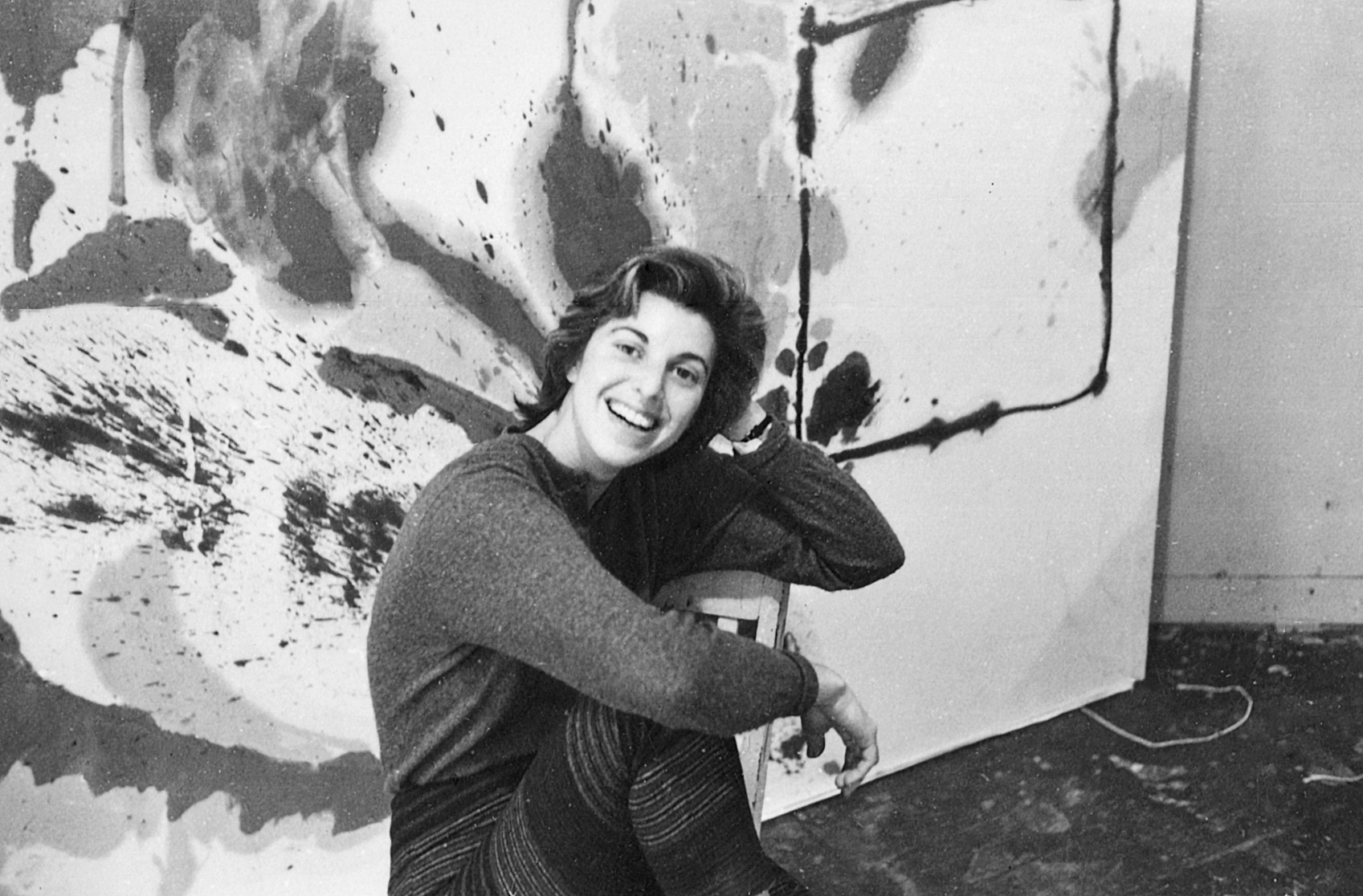 The largest posthumous survey of Helen Frankenthaler puts her in the frame with Pollock and Rothko
The largest posthumous survey of Helen Frankenthaler puts her in the frame with Pollock and RothkoGuggenheim Bilbao hosts 'Painting Without Rules', a major exhibition of soak-stain innovator Helen Frankenthaler’s paintings that also includes Pollock and Rothko
-
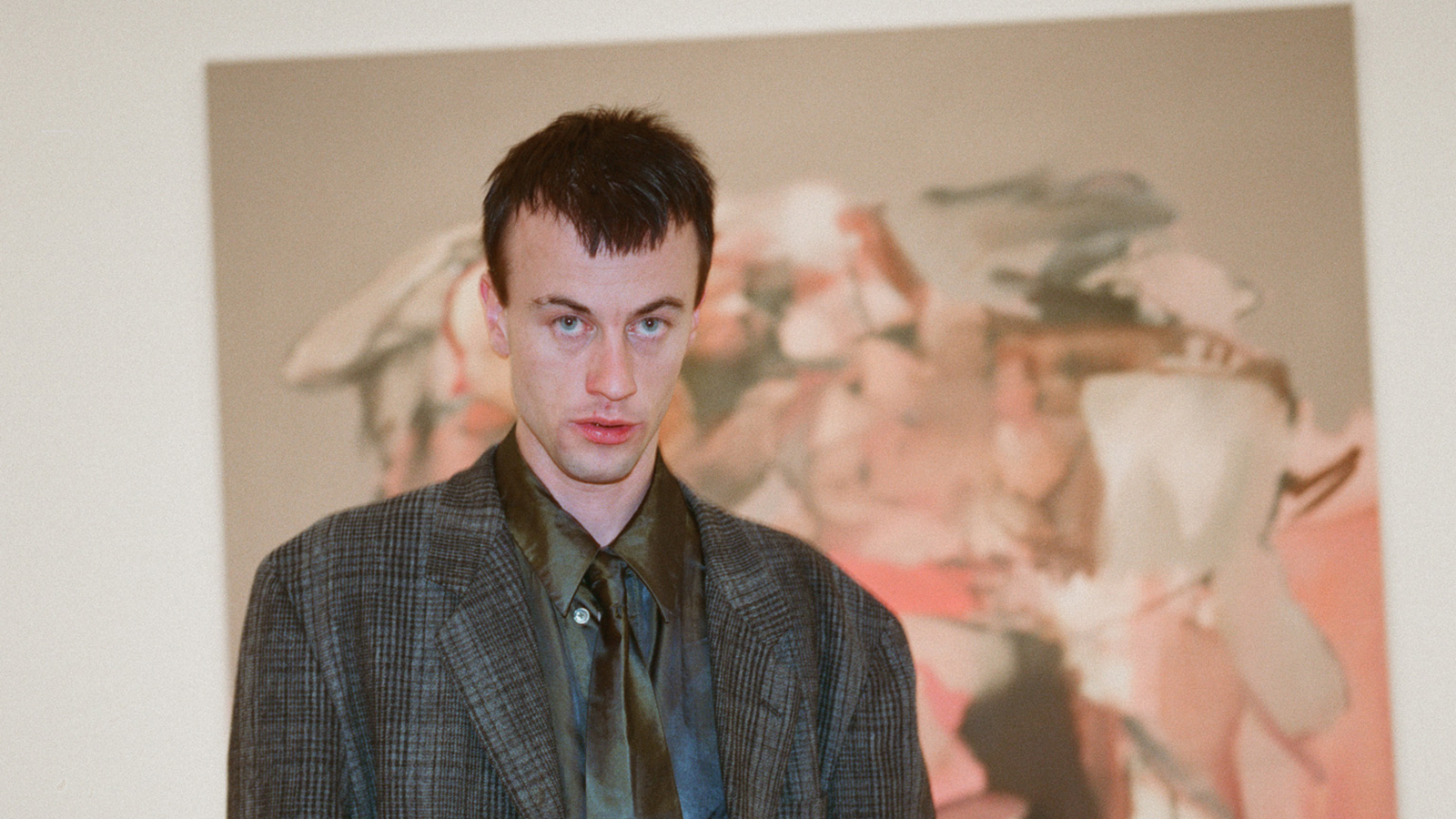 Inside the distorted world of artist George Rouy
Inside the distorted world of artist George RouyFrequently drawing comparisons with Francis Bacon, painter George Rouy is gaining peer points for his use of classic techniques to distort the human form
-
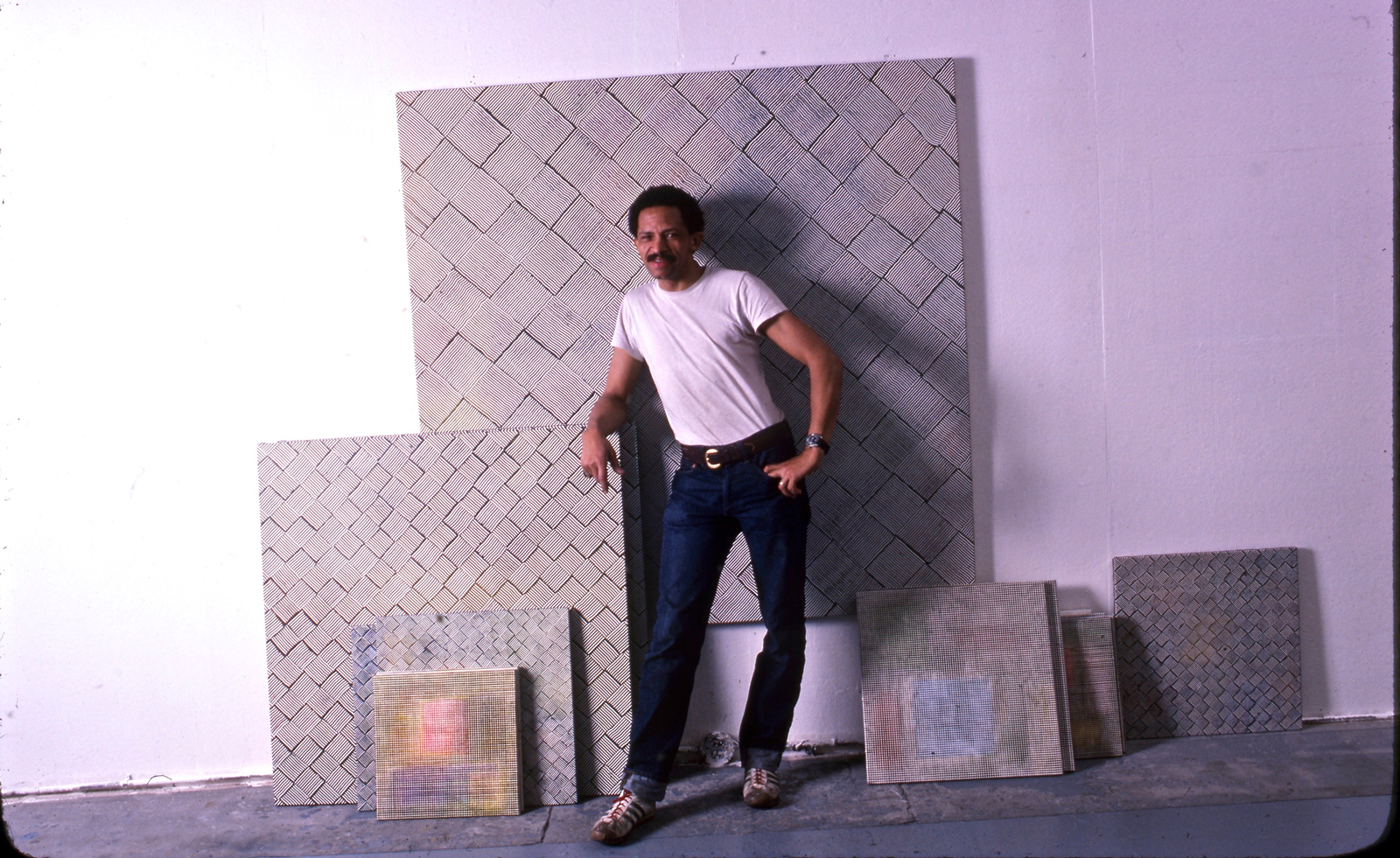 Inside Jack Whitten’s contribution to American contemporary art
Inside Jack Whitten’s contribution to American contemporary artAs Jack Whitten exhibition ‘Speedchaser’ opens at Hauser & Wirth, London, and before a major retrospective at MoMA opens next year, we explore the American artist's impact
-
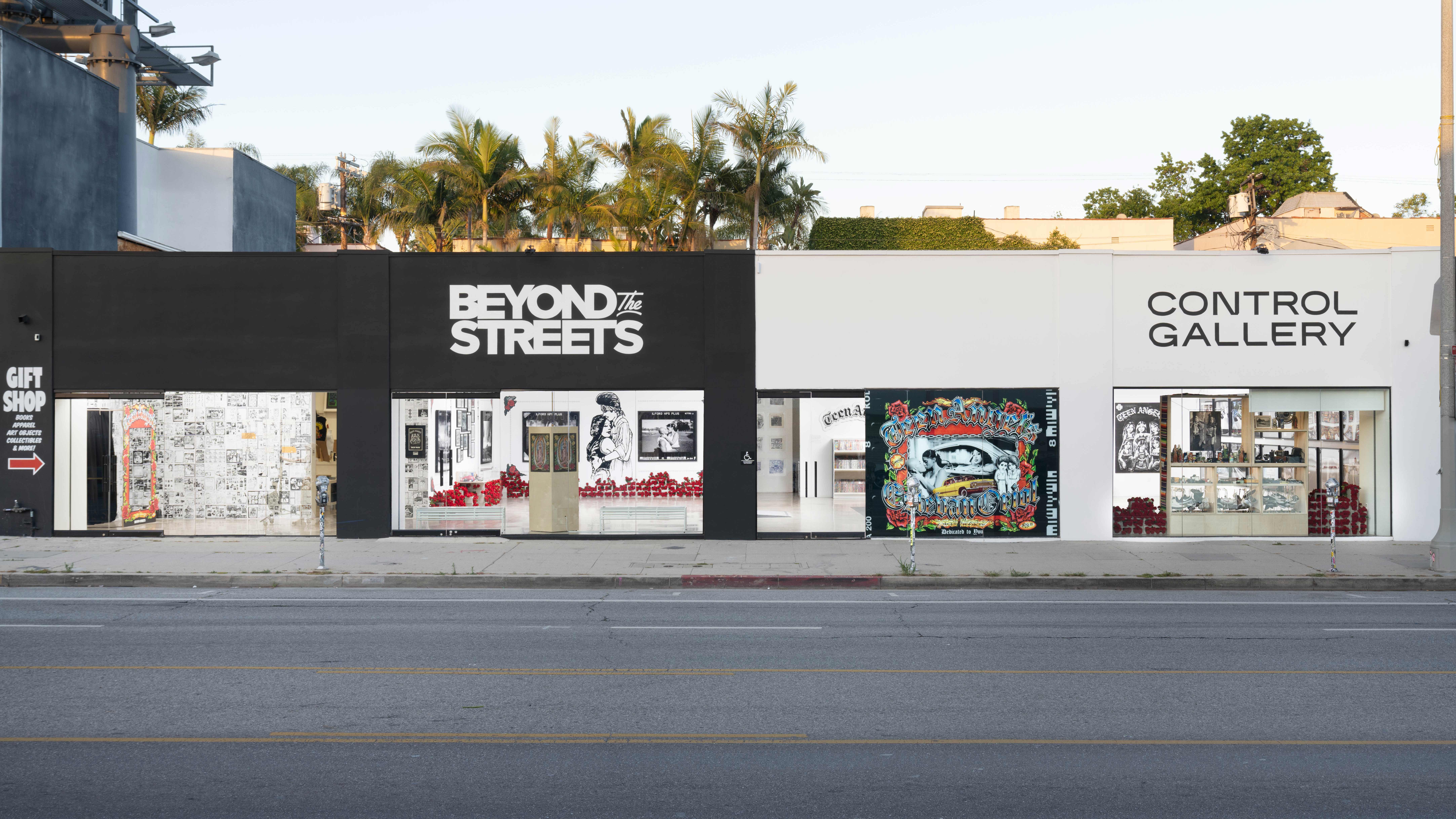 The lesser-known Los Angeles galleries contributing to a vibrant art scene
The lesser-known Los Angeles galleries contributing to a vibrant art sceneOutside of LACMA, MOCA and The Broad, these independent LA galleries are major players in the art world
-
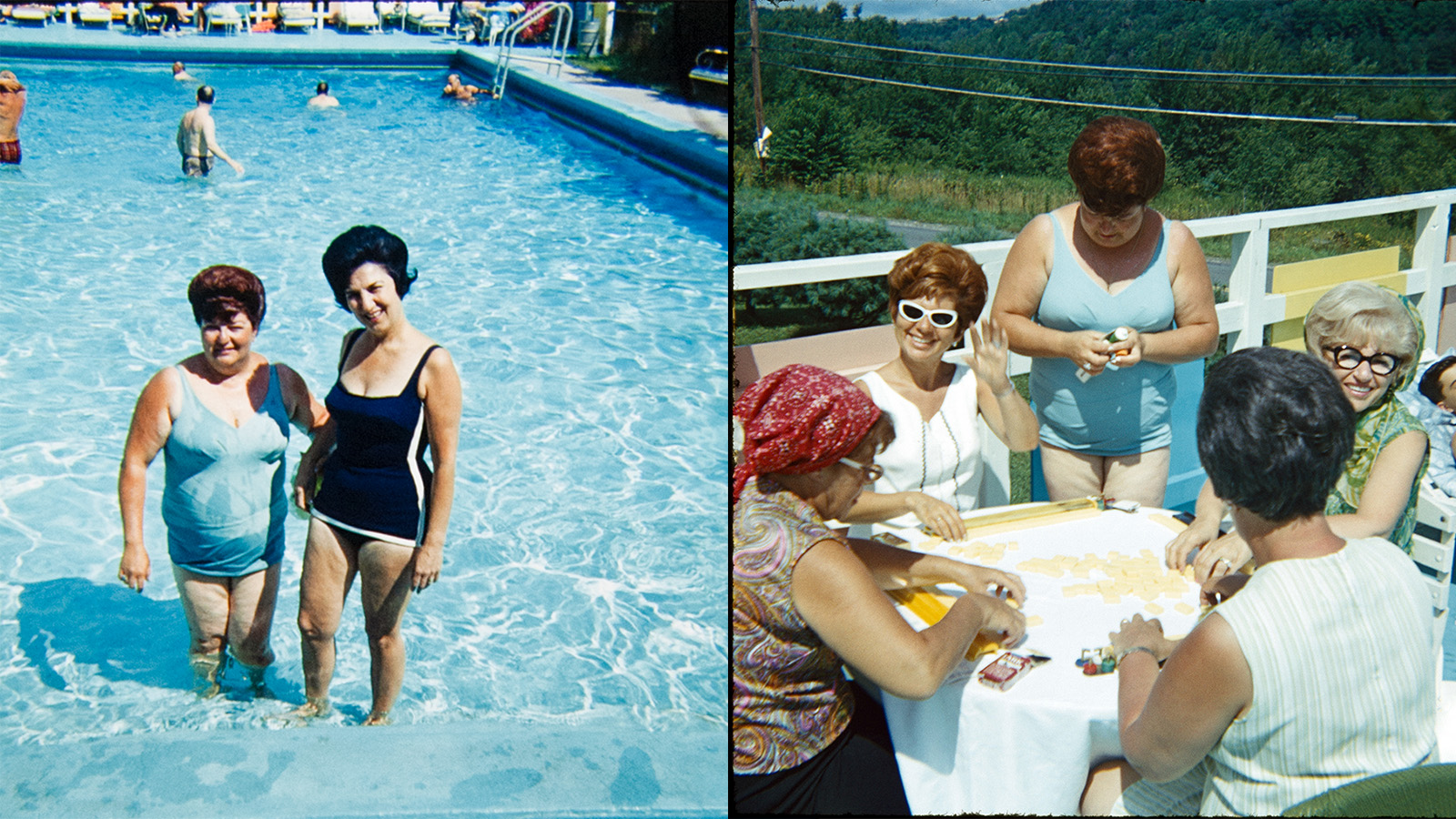 Los Angeles art exhibitions: the best shows to see in May 2025
Los Angeles art exhibitions: the best shows to see in May 2025Read our pick of the best Los Angeles art exhibitions to see this month, from Marisa J. Futernick’s inherited and imagined memories at the Skirball Cultural Center to Demetri Martin's comedic acrylic paintings at Laconic Gallery
-
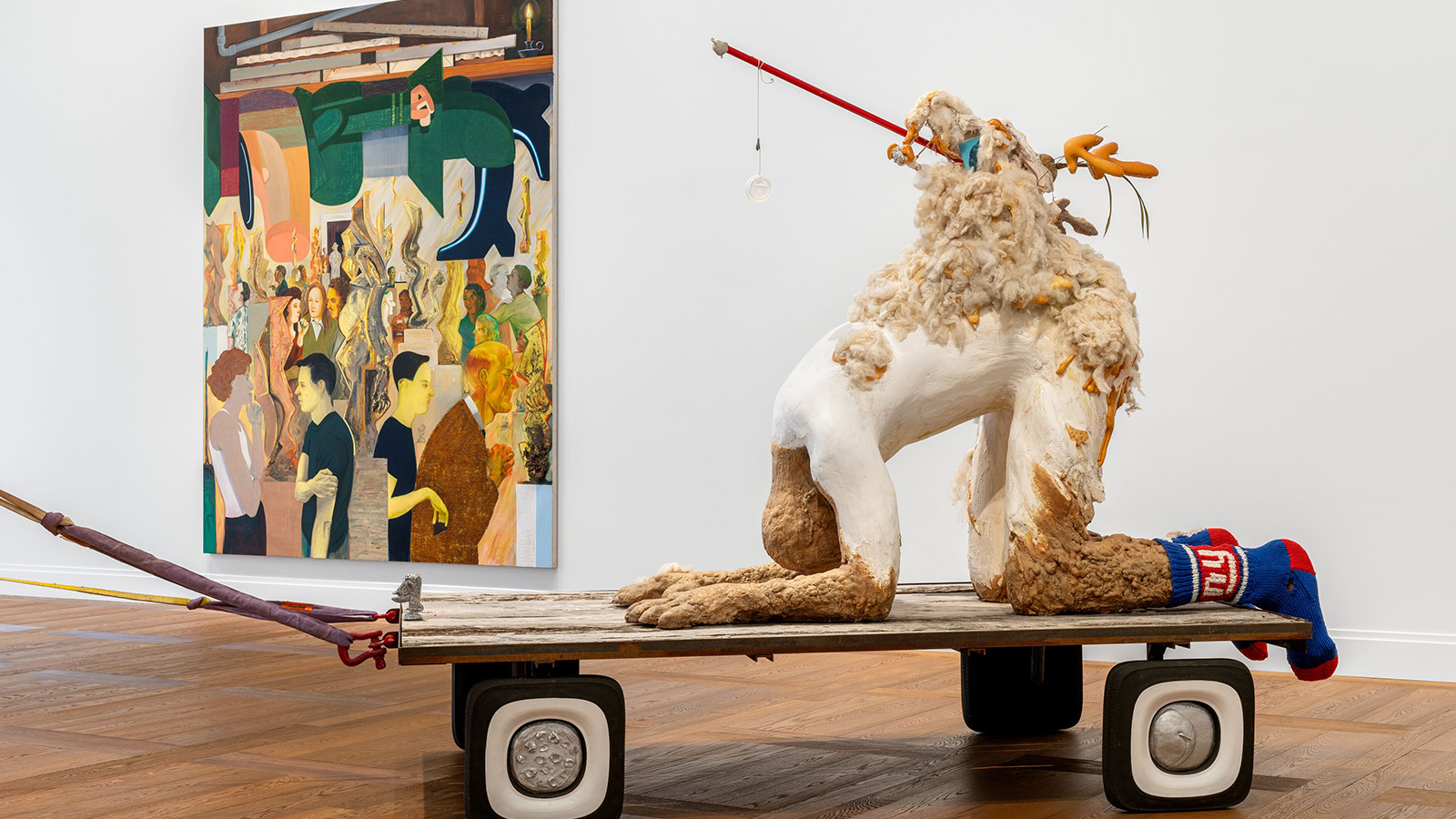 Nicole Eisenman explores the dimensions of sculpture and painting at Hauser & Wirth Paris
Nicole Eisenman explores the dimensions of sculpture and painting at Hauser & Wirth ParisNicole Eisenman presents ‘with, and, of, on Sculpture’, her first retrospective at Hauser & Wirth Paris drawing inspiration from political challengers to ABBA
-
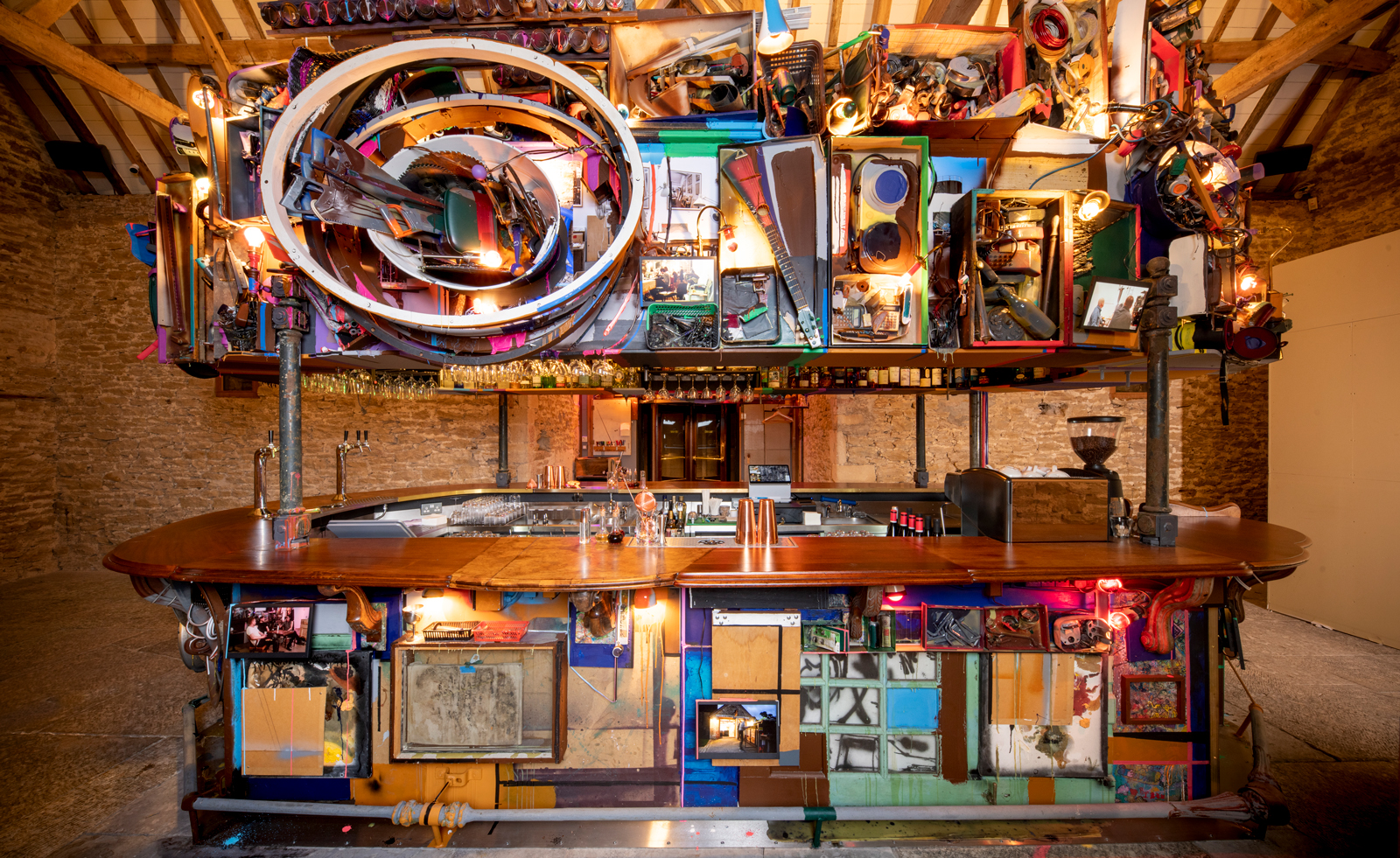 The Roth Bar at Hauser & Wirth Somerset serves up a cocktail of salvaged materials
The Roth Bar at Hauser & Wirth Somerset serves up a cocktail of salvaged materialsArt and entertaining meet in Oddur Roth’s bar sculpture at Hauser & Wirth Somerset, a site-specific installation and social hub
-
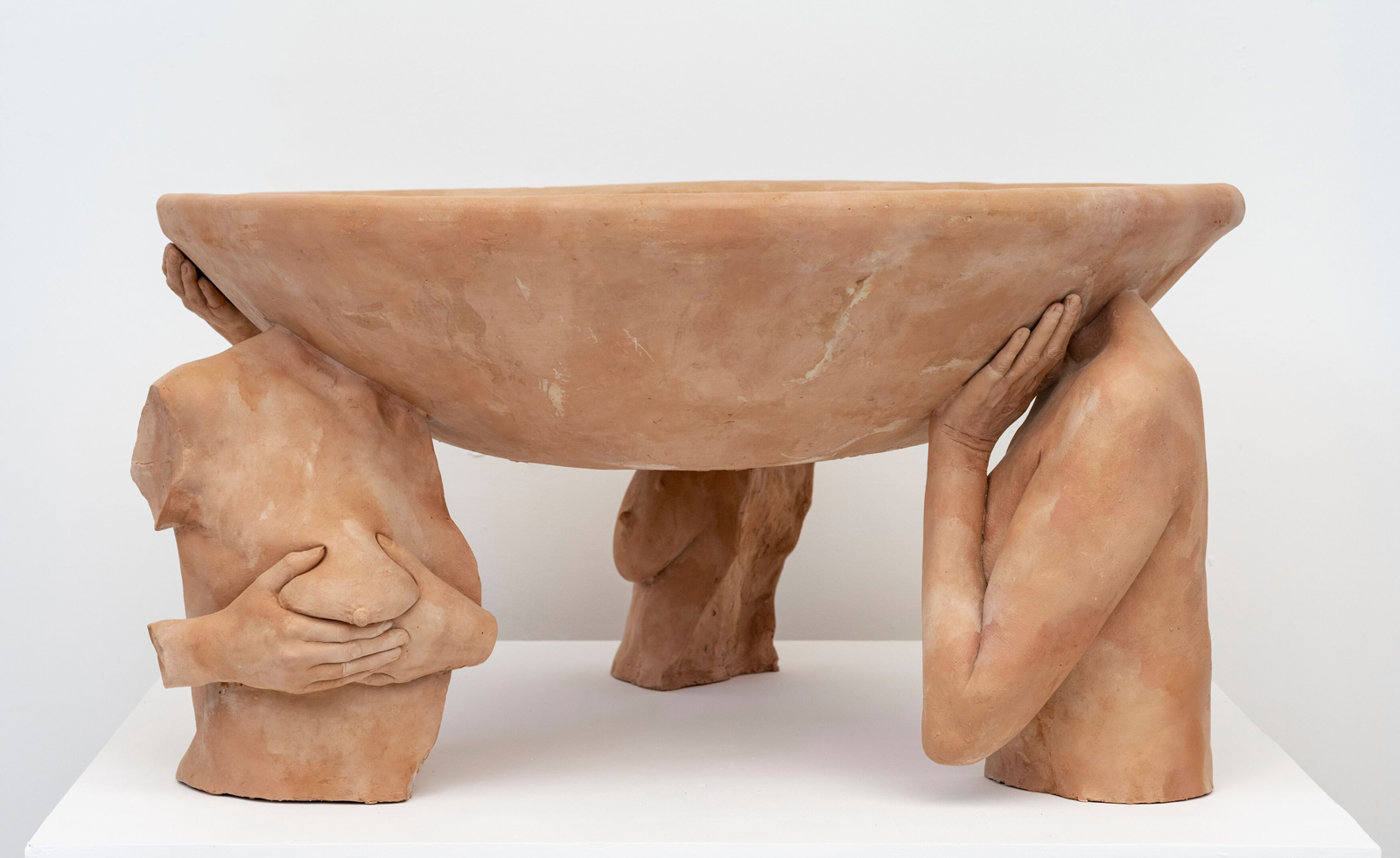 Who is the future of British art? Hauser & Wirth Somerset finds out
Who is the future of British art? Hauser & Wirth Somerset finds out‘Present Tense’ at Hauser & Wirth Somerset showcases some of Britain’s most exciting emerging talents with a group show of 23 artists
-
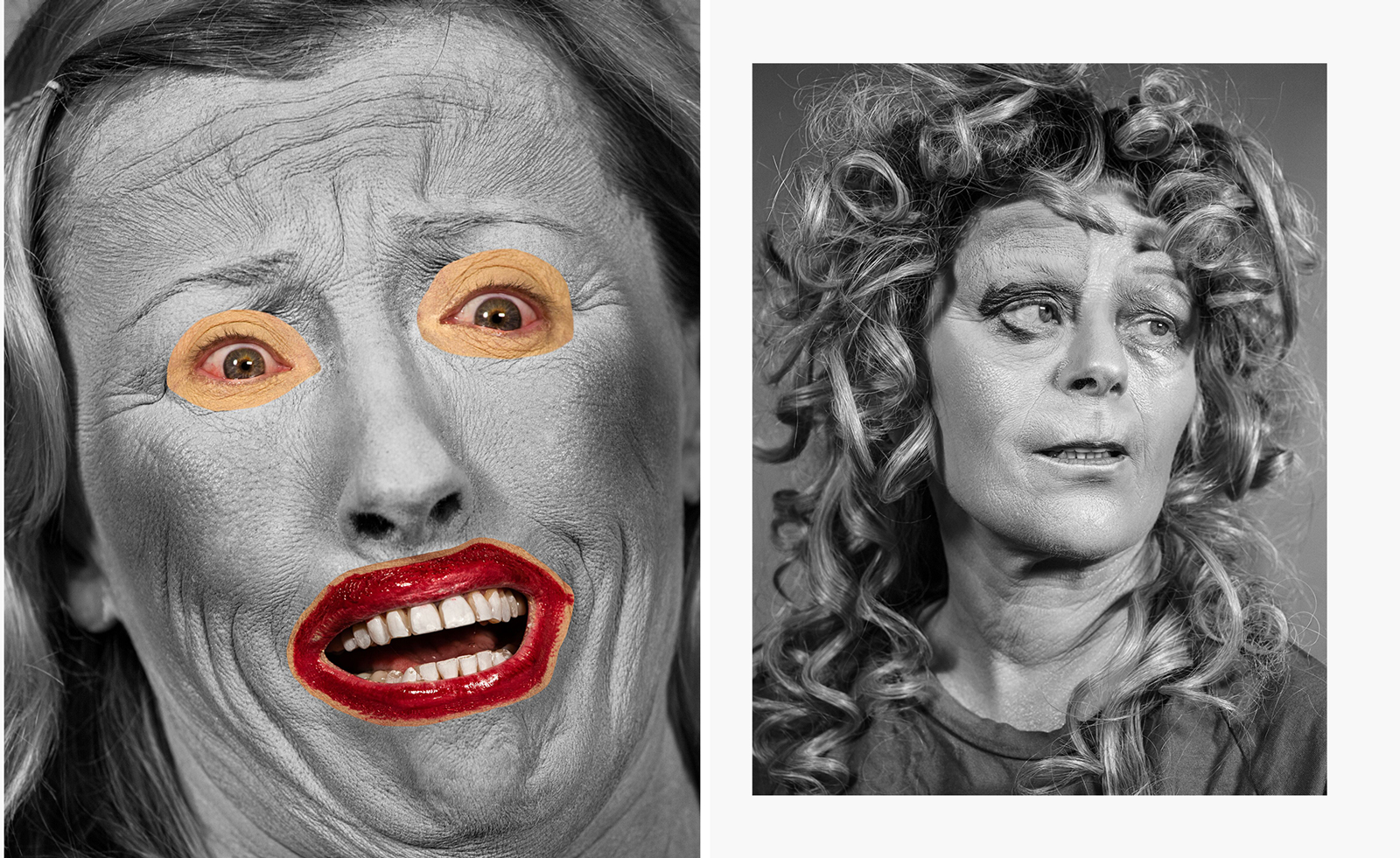 Cindy Sherman’s unsettling, fragmented portraits go on show in New York
Cindy Sherman’s unsettling, fragmented portraits go on show in New YorkCindy Sherman unveils 30 new works at Hauser & Wirth, New York